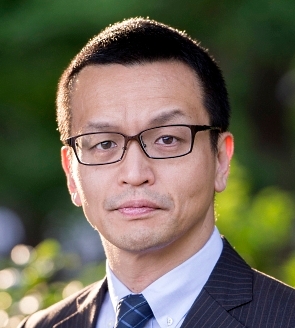
By Atsuhito Isozaki
The Workers' Party of Korea (WPK) has announced that the eighth Congress of the Party will be held in January. It has also been announced that the Supreme People's Assembly, which typically meets in April, will meet in late January, so it is highly likely that the Congress will meet in early January. In North Korea, the WPK's position over the state has been established, so the Party Congress is more important. Any decision of the WPK will be confirmed by the Assembly, a state body.
The agenda for the Congress which was announced in advance includes a revision of the party charter. This suggests the governing body will be reorganized. It is possible as well that the North Korean constitution may be amended by the Assembly. A goal of the Kim Jong-un administration has been to break with the military first (Songun) policy advocated during the Kim Jong-il administration, and the current administration has consistently emphasized the role of the party. The reinforcement of the party's governing body would reduce the burden borne by Chairman Kim Jong-un.
Each of the last seven Congresses has been historically important.
The first Congress held in 1946 was an organizational meeting for the WPK that enabled Kim Il-sung to come to the forefront. Top party officials were appointed at the second Congress, held immediately before the nation's founding in 1948. In 1956 the third Congress was held as the nation worked to recover after the end of the Korean War, reconfirming the nation's strong resolve to unify North and South Korea. The fourth Congress held in 1961 presented the seven-year plan which covered a longer period than the five-year plan of the Soviet Union. Now, it is hard to believe that at that time North Korea was far more economically prosperous than South Korea. In the fifth Congress held in 1970, Kim Il-sung further enhanced his position as supreme leader. Kim Jong-il appeared before the public for the first time during the sixth Congress in 1980, a clear indication of a hereditary transfer of power. These policies of the past Congresses have been handed down to the present.
However, a Congress has never been held during the Kim Jong-il administration. After the dissolution of the Soviet Union and the end of the Cold War, North Korea became isolated from the rest of the world. The nation experienced economic crisis and was in no position to hold a Congress. Kim Jong-il, the second Leader of the nation, worked to ride out the crisis under the "Songun" slogan that emphasized the army. During the Kim Jong-il administration, the plenary meeting of the Central Committee was held only once, and a crisis management system led by the National Defense Commission was organized.
For the first time in 36 years, the seventh Congress was held in May 2016 under the Kim Jong-un administration. During the congress, Kim Jong-un's position was changed from the First Secretary to the Party Chairman, which gave him greater authority.
Since Kim Jong-un began ruling North Korea, he has consistently worked to normalize the Party. The announcement of important decisions at the politburo meetings of the Central Committee of the WPK became a common rule. During the Military Parade Celebrating the 75th Anniversary of the Founding of the Workers' Party of Korea in October 2020, the nation emphasized that the Korean People's Army was "the Party's" army.
In 2020, with the COVID-19 pandemic sweeping the globe, Kim Jong-un rarely appeared on-site to provide guidance related to industry or the military. This guidance was replaced by frequently held party meetings. There have been no events to further summit diplomacy, and North Korea has issued statements criticizing the United States and South Korea. The next Congress will be held amidst their pursuit of conference-based politics and statement-based diplomacy. It will be the first Congress held while the nation is experiencing an economic downturn.
Compared to the previous Congresses which were able to flaunt economic achievements, there are almost no visible results to put on display at the next Congress. 2020 was the final year of the Five-year Strategy for the National Economic Development which was announced by the previous Congress. However, there has been almost no media coverage of it since the beginning of the year. Negotiations with President Trump failed in 2019, which led to the strengthening of economic sanctions, a result far from the lifting of sanctions. Additionally, the pandemic forced North Korea to close its borders to prevent infection in 2020, and then the summer flood damage dealt a third blow to the nation's economy.
The authorities of introverted North Korea are now working on rebuilding their economy through old-fashioned self-reliance and self-sufficiency. Eyeing the possibility of the long-term stagnation of US-North Korea negotiations, North Korea seems to be focused on driving its economy even in their state of national isolation.
While the basic policy of North Korea is strengthening the Workers' Party's governing body and the nation's self-reliance, the foreign policy will not be visible outside the country until Kim Jong-un speaks at the eighth Congress. Kim Jong-un repeatedly pushed forward with nuclear and missile tests until 2017, when he suddenly and boldly called for dialogue with South Korea on New Year's Day in 2018. Six months later, he had also achieved a summit between North Korea and the United States for the first time in history. Kim Jong-un likes surprises, and he may be preparing to pull off his first magic trick in the last three years. In January when Joe Biden takes office as the new president of the United States, we should keep an eye on the situation in North Korea.
(Atsuhito Isozaki is Associate Professor at Keio University, Japan.)
ADVERTISEMENT
ADVERTISEMENT


































